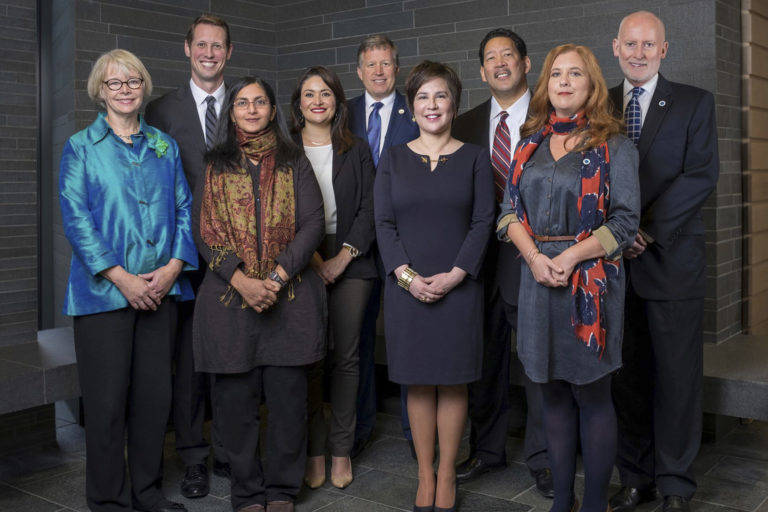The Seattle City Council was scheduled to pass police reform legislation that’s been more than half a decade in the making on Monday. It’s not universally beloved. Some critics say the oversight structure is too complicated, while others say the plan doesn’t go far enough.
Councilmember M. Lorena González, who guided the legislation through committee and a series of public hearings, says that it tries to address both concerns while also having built-in mechanisms to continuously review and reform city police policy. “Many of the policy choices we have made in this legislation have come from communities who are most negatively impacted by unlawful policing,” said González. She touted the plan as the ultimate fulfillment of the promises of reform city leaders have made since a 2011 Department of Justice investigation found that Seattle police were brutal and possibly racist.
As Crosscut’s David Kroman wrote on Friday, “The legislation will shift the city’s mechanisms for oversight toward a more civilian driven process, while simultaneously eliminating disciplinary and appeals processes within the department, along with what some regard as cushy assignments for officers on accountability reviews.” A majority of the City Council voted in committee to send the legislation to the full council for final approval, which will likely happen this afternoon. It will still need to pass review by Judge James Robart, who is supervising Seattle’s consent decree with the DoJ.
The current legislation is not without critics. City Attorney Pete Holmes and Police Chief Kathleen O’Toole both asked City Council to consolidate oversight authority into just the planned Office of the Inspector General (OIG), rather than the checks-and-balances-oriented “pyramid of power” model advocated by González, which O’Toole and Holmes say is needlessly covoluted, according to The Seattle Times.
Others want to strengthen the legislation, rather than simplify it. Seattle City Council Position 8 candidates Sheley Seacrest, Mac McGregor and Jon Grant together sent a letter to the City Council and news outlets today in which they asked city leaders for two major changes. First, they want to expand the resources and authority of the Community Police Commission (CPC) to make it more than just an advisory body. Second, they want the sections of police union contracts that deal with officer discipline to be negotiated publicly, or not at all. The letter notes that of the more than “200 cases of excessive force and racial discrimination [uncovered by the DoJ investigation], not a single police officer was fired.”
“With each month, we hear another disturbing and disheartening story of excessive force and racial profiling involving our police department,” reads the letter. “Current proposals by our elected officials do not go far enough. We need to enact true police reform which requires greatly expanding civilian oversight of the Seattle Police Department.”
Sheley Seacrest is a vice president of the King Count NAACP. Mac McGregor, also known as “the Gender Sensei,” has belonged to many local government and nonprofit boards. Jon Grant, former director of the Tenants Union, ran for this same seat in 2015 and lost against well-funded incumbent Tim Burgess, who is not seeking re-election this year.
Speaking before this afternoon’s Council vote, González said that the current legislation addresses O’Toole and Holmes’ complaint about the oversight process being too complicated by making the CPC a one-stop clearinghouse for tracking and synthesizing police policy recommendations, and implementation thereof.
Asked whether the parts of police union contract negotations dealing with officer discipline should be made public, González said that she respects collective bargaining rules for police officers. “What I’ve heard from…the broader labor movement is that they have significant concerns about what seems to be effectively daylighting labor negotiations in a way that hasn’t been done by the city of Seattle in the past,” she said. “It’s a complex issue, and we’re going to try to strike a balance between our commitment to be a union-friendly city and [the desire] to make at least some parts of the labor negotation process transparent.” González added that one way the current legislation does reform officer discipline is by consolidating appeals thereof to a single board staffed by civilians who do not work for the city. It will be called the Public Safety Civil Service Commission and its hearings will be public, she said.
cjaywork@seattleweekly.com








